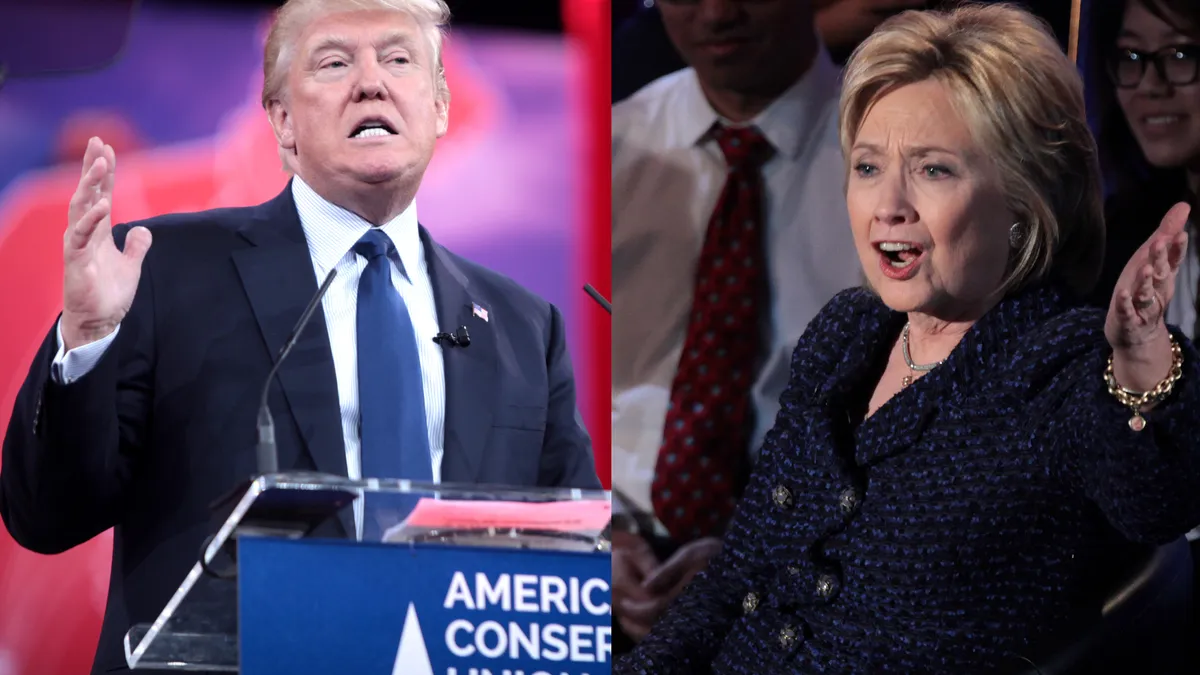In a recent blind survey of nearly 600 people on the issues that mean the most in higher education, readers split down the middle on which presidential candidate would be best for the industry.
The major sticking points were tuition-free college — 65% responded, "sounds nice, but who's going to pay for it?" — and the idea of safe spaces — 60% of respondents favored them, saying microagressions pose a real threat to the academic environment.
Accountability was a tougher call for Ed Dive readers: 44% said there are too many factors at play for institutions to be held accountable for student success; 36% said federal funding should be tied to student outcomes and another 20% said institutions should have some "skin in the game" for student loan default rates.
Education has not been much of a topic in the most recent debates — and, given the tone of this election cycle, perhaps that's not a bad thing. Much of the conversation has focused on the cost of education, which is a big factor in the future of the workforce. But while both candidates have talked about student loan debt, hammering down an exact stance on other issues has been a slightly more arduous task.
Based on our analysis of speeches, writings and the candidate's own campaign websites, here is where they stack up on a couple of key issues:
Accountability
Accountability, particularly of the for-profit sector, has been a huge sticking point of President Obama's education focus. Much conversation has been had about whether the federal government should intervene in cases of institutions graduating students with high debt loads and "worthless" degrees, if they graduate at all.
While most in higher ed — and both candidates — seem to agree with the idea of holding institutions accountable for student outcomes, questions remain about how this will affect the industry in the long-term. Here's where the Democratic and Republican nominee stand:
Affordability
College affordability is the one topic that has dominated much of this election cycle. From proposals on free community college (which eventually turned into free public college as a whole for Clinton), to aggressive loan forgiveness proposals, there has been no shortage of talk about the cost of higher education, which has led to many in the industry having to defend the relevance of the model.














